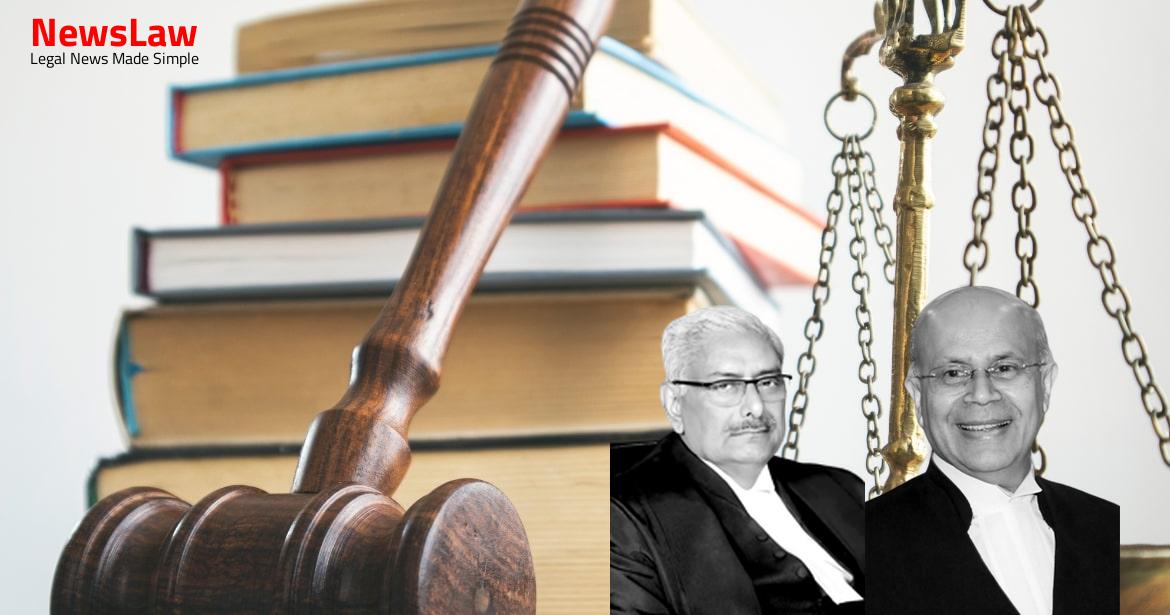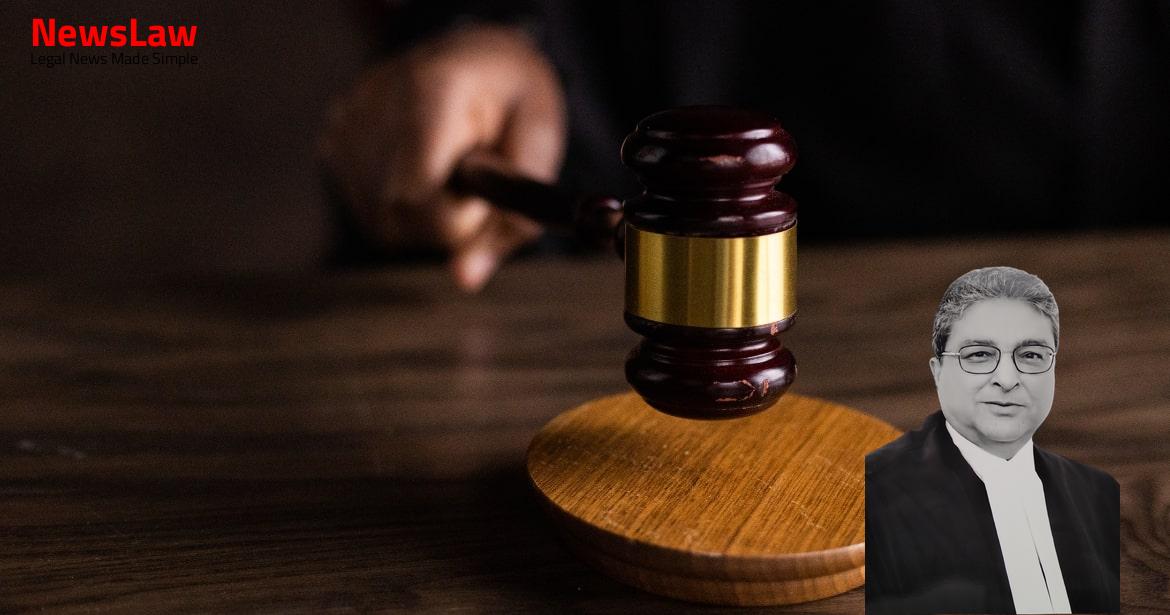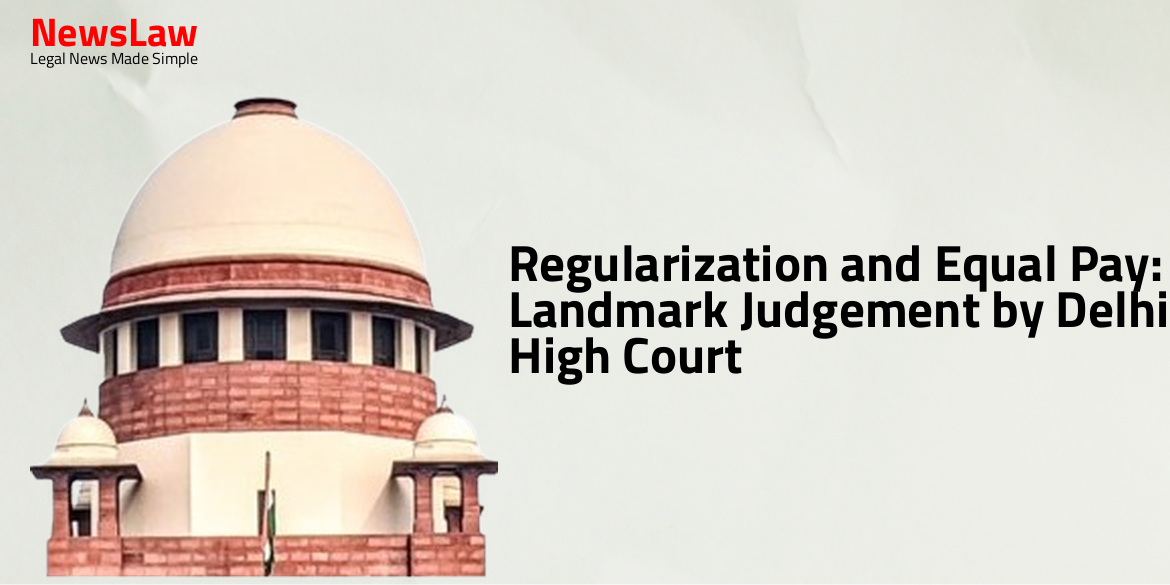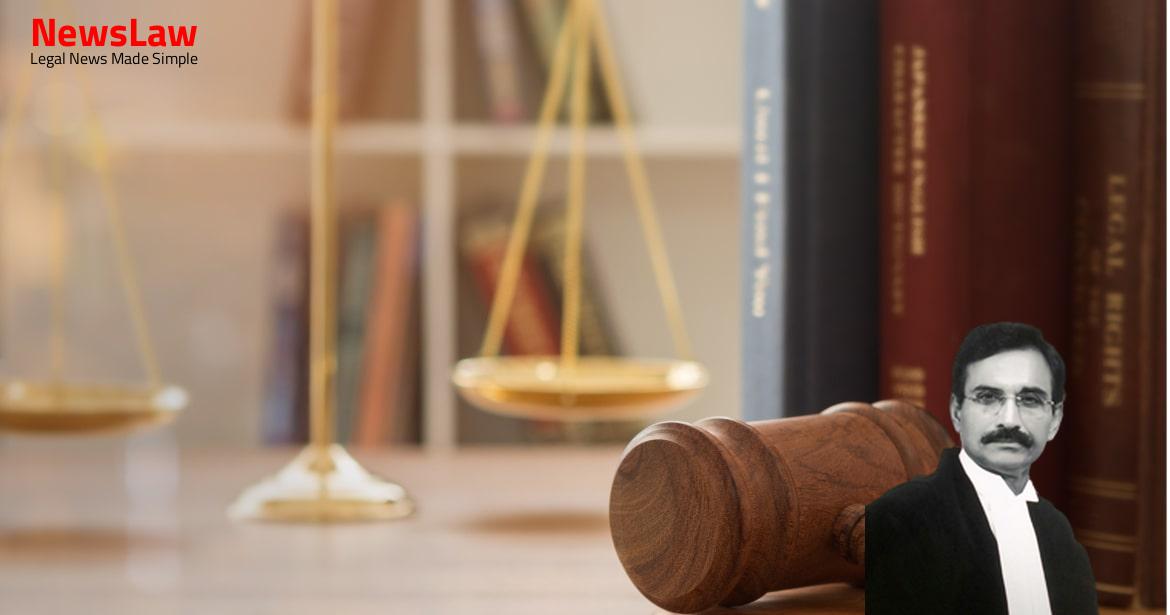Dive into the realm of professional ethics within the legal profession as we dissect a recent court case focusing on the Court’s legal analysis. Emphasizing the importance of upholding ethical standards, this case sheds light on the responsibilities of lawyers as officers of the Court and the necessity of mutual respect between the Bar and the Registry. Join us on this journey of introspection and exploration of noble conduct in legal practice.
Facts
- Registry disposed of the writ petition despite defects being noted
- Petition filed on 20.5.2020 was not delayed
- Registry noted defects in Diary No.11236 of 2020 and petition is still pending with defects
- Despite defects in the petition, the Registry did not point them out and the case was listed for hearing
- Petitioner requested six weeks to file necessary documents, but the request to adjourn the case was declined
- Petition filed by Arnab Ranjan Goswami was listed urgently due to the nature of the case
- Registry is working with reduced strength during the pandemic and there was no justification for the petitioner to allege discrimination
Also Read: Legal Analysis of Change in Law Compensation in Power Purchase Agreements
Arguments
- The petitioner, an Advocate practicing in the Court, has filed a writ petition under Article 32 of the Constitution of India against various officers of the Registry of this Court and the Union of India.
- Expectations from the petitioner are higher due to his belonging to a respected intellectual class and noble profession.
- Prayer in the petition seeks a direction to prevent giving preference to influential lawyers/petitioners, law firms, etc., and to ensure equal treatment for cases by ordinary lawyers/petitioners.
- Specific requests include not pointing out unnecessary defects, refunding excess court fees and charges, and avoiding tagging cases without the Court’s order or direction.
- The petitioner filed a Writ Petition (Civil) D. No.10951 of 2020 on 16.4.2020.
- Despite the urgency, the Registry did not register and list the writ petition promptly.
- The petitioner had to pay additional court fees to expedite the listing of the petition.
- Registry pointed out three defects in the petition – (1) Court Fee of Rs.530 was not paid, (2) Documents not placed as per index, (3) Incomplete details in the index and missing annexures.
- The petitioner raised concerns about unequal treatment towards ordinary lawyers/litigants.
- A prayer was made to the Secretary General of the Court to take action against the officers involved in the listing process.
Also Read: Fair Investigation in Criminal Cases: Legal Analysis
Analysis
- The petitioner filed the writ application in a hurried manner, without proper inquiries and material
- The Registry pointed out defects in the application, which were later cured by the petitioner
- There was a complaint made by the petitioner to the Secretary-General against the Registry, but it was left unanswered
- The petitioner’s conduct was questioned for circulating a letter seeking an unjustified adjournment
- It was highlighted that the ethical standards of the legal profession must be maintained
- The importance of honesty, hard work, and dedication in the legal profession was emphasized
- The Registry’s role in listing cases during the pandemic was acknowledged, despite facing challenges
- The need to avoid baseless allegations against the Registry and staff and to uphold the dignity of the Court was underlined
- The responsibility of lawyers as officers of the Court and the need for mutual respect between the Bar and the Registry was highlighted
- The issue of defective petitions being filed and the pressure on Registry staff was discussed
- The importance of protecting the high values of the legal profession was emphasized
- The Bar Council has the power to discipline lawyers and maintain the nobility of the profession.
- Contempt of court is a powerful tool that should be used sparingly to remain effective.
- Judges have the responsibility to guard the dignity of the court and take action in cases of contempt.
- Lawyers are expected to be governed by professional ethics, etiquette, and ethos.
- The Bar has the statutory duty to make the legal profession more noble and protect the integrity of the legal system.
- Advocates are an intellectual class of society and are expected to set an example for others.
- The weapon of the advocate is likened to the sword of a soldier, emphasizing the importance of noble and ethical behavior.
- In cases of professional misconduct, actions of a lawyer can amount to contempt of court.
- The expectation from lawyers is to protect the rights of their clients and ensure that justice is delivered untainted.
- Lawyers are expected to effectively address defects and not criticize the system without reason.
- The Registry is expected to work efficiently and effectively.
- No valid reason was found to entertain the petition.
Also Read: Lack of Locus Standi in Appeal Decree: Court’s Legal Analysis
Decision
- The Union of India was directed to examine the feasibility of implementing the Scheme
- The petitioner’s petition was dismissed
- A cost of Rs.100/- was imposed on the petitioner as a reminder of responsibility towards the noble profession
- The petitioner was advised to be more careful and uphold the dignity of the profession
Case Title: REEPAK KANSAL Vs. SECRETARY GENERAL SUPREME COURT OF INDIA (2020 INSC 449)
Case Number: W.P.(C) No.-000541 / 2020



